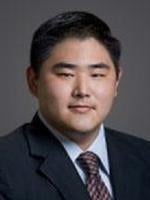The Trump administration’s tough rhetoric and early aggressive actions on immigration promise a period of increased worksite enforcement. With the administration’s strong statements against illegal immigration and abuses of the immigration system, including an executive order calling for 10,000 new U.S. Immigration and Customs Enforcement (ICE) agents, employers can expect an increased number of audits, raids, and investigations. Given this added scrutiny and the increased prospects of a fine or other penalty, employers may want to know their rights in the event of a worksite visit, and to review and update their protocols for responding to such visits.
Employer Rights
Law enforcement officers will not assert an employer’s rights on the employer’s behalf. Therefore it is important that employers be aware of their rights and be prepared to assert them in the event of a site visit.
-
Once a company representative becomes aware of a worksite investigation or raid, swiftly notifying in-house legal counsel or an appropriate corporate officer can help the employer to preserve its rights. Note that a government official with a warrant is not required to wait for counsel to begin executing the warrant, so time will be of the essence when trying to stay on top of the situation.
-
If an officer is conducting a site visit to obtain I-9 records, unless the officer is executing a search warrant, the employer has the right to three days’ notice prior to turning over I-9 documents.
-
An employer has the right to deny officers permission to access non-public areas of the employer’s property absent a valid warrant.
-
If the officer is in possession of a warrant, the employer has a right to review the warrant to verify its validity and scope (e.g., Is it signed by a court? Has the warrant expired? What are the locations to be searched and items sought?).
-
Warrants apply only to law enforcement officials; an employer has the right to refuse media or news reporters access to the facility.
-
If an employee is to be interviewed as a representative of the employer, the employer has the right to have counsel present during any such questioning.
-
Employers may benefit from taking detailed notes of all activities being performed by the visiting government officials. If possible, employers may even wish to take video recordings of the officers’ activities. The officer may insist that making recordings is not permitted; however, in many jurisdictions, employers do have that right as long as they are not interfering with law enforcement operations.
-
A helpful practice during a worksite investigation is to obtain the lead officer’s business card or contact information.
Preparing for a Site Visit
Employers that take proactive steps to fully develop policies and procedures to follow in the event of a worksite inspection will be better prepared to effectively assert their rights and protect their interests.
Designate an Immigration Compliance Officer. One of the key proactive measures an employer can take in anticipation of a worksite audit or raid is to designate an immigration compliance officer as a central point of contact for law enforcement agencies in connection with any worksite enforcement activities. An immigration compliance officer has three key responsibilities in the event of a site visit by immigration enforcement officers: first, to serve as a crucial point of contact between the company’s legal team and its immigration counsel; second, to coordinate between the legal team and site personnel to ensure that local personnel behave in a manner that is compliant with the law while also preserving the employer’s rights; and third, to be familiar with the company’s immigration records and procedures so he or she is able to respond to basic government questions in the absence of counsel.
Train Personnel Who Interface With the Public. Another good practice is to train personnel who may encounter an immigration enforcement officer at an employer site (typically a receptionist, cashier, or site manager) to request a copy of the officer’s credentials (i.e., badge and business card), not to disclose any information, and to direct all inquiries and requests for site access to the immigration compliance officer. Employers may also wish to consider designating primary authority for granting access to facilities or documents to the immigration compliance officer. Despite the desire to be helpful, employees will best serve the company’s interests by being polite and respectful while firmly adhering to this standard procedure.
Develop Practical Standard Operating Procedures and Guides. The stress of a site visit may cause otherwise capable employees to make less than optimal decisions or ill-advised statements to officers. Whether this stress is caused by the shock and awe of a full-scale ICE worksite raid or the mere intimidation of being questioned by a federal agent, it can present risks for employers. Having well-thought-out field guidance prepared in advance may be the deciding factor in effective preservation of employer rights.
Practical field guidance that employers may wish to consider include a list of “dos and don’ts” and a list of steps to follow when immigration officers appear on-site. These guides can anticipate real-world situations that may arise. (What if an officer appears to be detaining employees for an extended period of time? What if an officer has no warrant but insists on accessing the site anyways? What if an officer asks about a specific employee? What if an officer is simply hanging around the parking lot and questioning employees? What if an officer appears to be exceeding a search warrant?) There are many ways a site visit could take an unexpected turn, and employers may want to be prepared for these possibilities.
Clean House and Keep It in Order. The best defense is full compliance. As part of a regular compliance best practices regimen, many employers conduct regular in-house I-9 audits (at least annually) to ensure that their I-9 forms are properly completed, retained, and corrected as applicable. Employees responsible for I-9 completion may benefit from regular training on I-9 procedures to help them keep abreast of the latest changes to the I-9 forms and rules. A company I-9 compliance program is another tool that provides guidance to employees who have I-9 responsibilities.
By ensuring proper I-9 completion (including following all correct procedures for completing I-9 forms), an employer not only reduces its risk of monetary penalties from paperwork violations but likewise reduces the risk of penalties arising from employment of an unauthorized worker.
Key Takeaways
Many changes have occurred in recent months, including: increased I-9 penalties, the issuance of a new Form I-9, and now, the emergence of the Trump administration’s immigration agenda, which appears to carry a “zero tolerance” focus. In this new enforcement climate, employers may want to shore up their internal compliance procedures and familiarize themselves with their rights in the event of enforcement activities.




 />i
/>i
